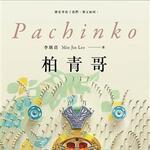佐伊雅
說
【書】Min Jin Lee的《Pachinko》(柏青哥)
Man, life’s going to keep pushing you around, but you have to keep playing.
#讀嘛讀嘛
原文是英文,但有中譯: 柏青哥
柏青哥
Man, life’s going to keep pushing you around, but you have to keep playing.
#讀嘛讀嘛
原文是英文,但有中譯:
 柏青哥
柏青哥
佐伊雅
說
《柏青哥》寫的是在日朝鮮人的故事。主軸圍繞著一個在殖民時期從韓國來到日本的家族,他們在日本落地生根,經歷二戰與韓戰,家族裡第二、三代的人都是在日本出生長大,卻始終被當成「外國人」。書名《柏青哥》是日本的一種鋼珠賭博遊戲,在日朝鮮人由於遭受就業歧視,許多人最後都投入柏青哥產業。
佐伊雅
說
在日朝鮮人的父祖輩來自朝鮮半島的不同區域,他們來到日本時,尚未有「南韓」、「北韓」這兩個國家。然而,到後來韓戰結束,在日朝鮮人卻得選擇自己要拿南韓是北韓的護照。不曾踏上朝鮮半島的他們,就這樣被分配到了一個「祖國」。然而在日朝鮮人的「國族認同」卻不一定是韓國,《柏青哥》中呈現出他們對於「國家」的多元看法。
佐伊雅
說
雖然主角是在日朝鮮家族,不過書中也約略提了一些融不進日本社會,不被接受的邊緣日本人。跟在日朝鮮人一樣,他們因為各種原因被歧視、被排斥。柏青哥這個遊戲便是在隱喻這群在社會上找不到自已的位置的人——即使知道輸的機率大於贏的機率,但他們仍抱著一絲希望,掙扎著求生。

佐伊雅
說
作者的文字很直白樸實,口吻冷靜理性,讀這本書時像是在以第三者角度旁觀角色們的人生。而作者也透過這群背景相異的角色,巧妙地帶出不同議題,像是不同世代的國族認同、社會中的結構性歧視,還有女性在社會中被賦予的責任。
佐伊雅
說
《柏青哥》的主要角色們都是些「小人物」,他們並沒有直接參與二戰或韓戰,而是非自願地被這些戰爭、政治問題所影響,不過他們又能做些什麼呢?只能繼續想辦法生活下去。主角們大部分的時間都在受苦受難,雖然其中不乏一些溫馨、令人開心的部分,在結局也給人一點希望,但整體來說我覺得還是有些沈重。
佐伊雅
說
作者在書後面的訪談說,她對於歷史中的「配角」很有興趣,但我覺得這本書到後來配角有點太多了,有些配角只出現一下,之後就幾乎消失,對於主線也沒有什麼影響,感覺如果能把他們的故事線寫得更完整更好。(或是乾脆不加入這些配角XD)
佐伊雅
說
女主角Sunja是歷史中常見的配角,她受到當時時代的限制,無法接受教育,而她的人生也幾乎不是自己的,而是貢獻給父母、丈夫與孩子。然而若是沒有她的犧牲,後代也無法有安穩的生活。
佐伊雅
說
在《柏青哥》中,作者呈現出女性不同的樣貌,有如Sunja這樣為他人而活的女性,而隨著時代的演變,也有更多有自己的慾望、報復,為自己而活的女人。也是這樣的變化,讓我覺得整本書沒有那麼沈重壓抑——上一代的女性受苦受難,但她們創造出的未來會讓後代有更多的選擇。
佐伊雅
說
書裡的角色並沒有太牽扯到政治,大多專注於養家糊口上。不過我讀完後想到之前看過的這個影片,講的是偏向北韓的在日朝鮮人。
 Inside North Korea's bubble in Japan
Inside North Korea's bubble in Japan
 Inside North Korea's bubble in Japan
Inside North Korea's bubble in Japan
佐伊雅
說
影片中提到的惡性循環:日本的民族主義 → 對在日朝鮮人的歧視 → 在日朝鮮人向北韓尋求歸屬感→日本的民族主義
佐伊雅
說
===以下摘句===
佐伊雅
說
One day, you'll understand that people from islands are different. We have more freedom. (P. 40)
佐伊雅
說
She would not believe that she was no different than her parents, that seeing him as only Korean— good or bad— was the same as seeing him only as a bad Korean. She could not see his humanity, and Noa realized that this was what he wanted most of all: to be seen as human. (P. 341)
佐伊雅
說
If you do well at anything, you gotta pay up to all the people who did worse. On the other hand, if you do badly, life makes you pay a shit tax, too. Everybody pays something.
佐伊雅
說
Pay attention: The ones who pay the shit tax are mostly people who were born in the wrong place and the wrong time and are hanging on to the planet by their broken fingernails. They don't even know the fucking rules of the game. You can't even get mad at 'em when they lose. Life just fucks and fucks and fucks bastards like that.
佐伊雅
說
So, those losers have to climb Mount Everest to get out of hell, and maybe one or two in five hundred thousand break out, but the rest pay the shit tax all their lives, then they die. If God exists and if He's fair, then it makes sense that in the afterlife, those guys should get the better seats. (P.490)
佐伊雅
說
Beyond the dailiness, there had been moments of shimmering beauty and some glory, too, even in this ajumma's life. Even if no one knew, it was true. (P. 528)
佐伊雅
說
(↑書中常像這樣交雜一點韓文與日文單詞,覺得很有趣XD)
佐伊雅
說
===作者訪談的摘句===
佐伊雅
說
Although the history of kings and rulers is unequivocally fascinating, I think that we are also hungry for the narrative history of ordinary people, who lack connections and material resources. (P. 540)
佐伊雅
說
Interestingly, women have become at best the minor characters in history— although we represent half the human race— because we have left so few primary documents in nearly all cultures and civilizations. (P. 542)
佐伊雅
說
It is possible that characters need to die for the author to make her moral point, or for the author himself to regenerate by letting go of an ideal identity, or for the world to recognize the necessity of certain ideas and ideals to die. (P. 546)
佐伊雅
說
For me, the pachinko businesses and the game itself serve as metaphors for the history of Koreans in Japan— a people caught in seemingly random global conflicts— as they win, lose, and struggle for their place and for their lives. (P. 549)
佐伊雅
說
===
佐伊雅
說
想聊聊有劇透的內容,等等再來開一個有雷噗!XD